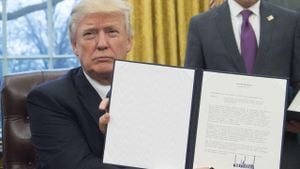The upcoming presidential election scheduled for January 26, 2024, has become yet another symbol of the authoritarian grip of Alexander Lukashenko's regime over Belarus. Analysts and international observers have expressed skepticism about the fairness and credibility of this election, as it is taking place under conditions of extensive state repression and intimidation.
No election held in Belarus since 1994 has been deemed free or fair, and this year's vote is unlikely to change this trend. Once again, Lukashenko, who has been at the helm of Belarus since 1994, is expected to secure his re-election for an unprecedented seventh term. The significant development surrounding this election is the absence of real political competition, with alternative candidates being either allies of the regime or mere “spoilers” lacking genuine agency.
Opposition leader Svyatlana Tikhanovskaya, who was forced to flee the country after standing against Lukashenko during the contested 2020 election, has called this election process nothing short of farcical. She stated, "The Belarus regime has turned electionsinto a farce—a mask to hide its crimes and cling to power against the people’s will. The dictator’s planned self-reappointment is not democracy; it’s a tool of repression and control" (Emerging Europe).
Despite the lack of competitive candidates, local authorities are intensifying their efforts to demonstrate legitimacy by conducting these elections. According to the Viasna Human Rights Center, approximately 1,300 political prisoners are currently detained; many face harsh conditions and systematic violations of their rights. These conditions were acknowledged by U.S. Secretary of State Antony Blinken, who said, “The United States joins many of our European allies in assessing thatelections cannot be credible in an environment where censorship is ubiquitous and independent media outlets no longer exist.”
Looking back to the protests following the 2020 election—where Tikhanovskaya was largely believed to have won—one observes the regime's increasing resolve to quash dissent. Following those elections, Lukashenko launched widespread crackdowns, with reports of protests-sized crowds facing violent state repression. The trauma surrounding the 2020 protests initially created space for hope and resistance; now, fear seems to dominate any sentiment of potential change among the populace.
Today, the environment surrounding the upcoming election can be described as grotesque. This time, the regime has done away with even the illusion of choice, as opposition figures are not only barred from candidacy but also actively prevented from politically mobilizing their supporters. Tikhanovskaya highlighted this oppressive atmosphere by mentioning, "The outcome of the election... has been determined long before any ballots are cast."
Security forces are reportedly conducting intimidation tactics, including preventive interviews with activists and former political prisoners. The composition of the election commission is heavily skewed toward pro-government organizations, ensuring no room for oversight from independent entities—Exiled analysts say managing dissent requires demonstrating control through intimidation rather than public support.
Just last week, the European Parliament announced plans for adopting a resolution denouncing the upcoming elections as illegitimate and affirming its non-recognition of any attempt made by Lukashenko to solidify his grip on power through this electoral process. The motion also highlights the systematic violations of human rights faced by Belarusian citizens, with significant international pledges for support continuing to sprout as exiled activists and independent media launch critiques from abroad.
International observers express concern, pointing out the lack of any independent media presence or credible outlets able to assess electoral integrity fairly. With the local independent press continuously facing hurdles, and many journalists being unlawfully detained or operating from exile, the chance of producing independent coverage remains bleak.
Compounding this situation is the fact the Organization for Security and Cooperation in Europe (OSCE) was not permitted to oversee or monitor the election proceedings. Blinken continued, "the regime’s failure to issue a timely invitation to the OSCE to observe the election...underscores its disregard for transparent electoral processes and for its obligations as an OSCE participating state." Given this backdrop, officials from Poland, Lithuania, and other nations have made declarations they will not recognize the election outcomes due to the blatant coercive environment.
Critics argue Lukashenko’s machinations undermine not only democracy but also the broader principles of freedom and expression which underpin civil society's growth. According to international rights watchdogs, the situation remains dire, with close surveillance and strict limitations on information dissemination becoming hallmarks of Belarusian governance.
Given the systemic nature of repression and challenges faced by activists, this election's purpose seems overwhelmingly geared toward perpetuating Lukashenko's hegemony rather than facilitating genuine democratic governance. Yet, personal accounts from within the country hint at resilient spirit amid the continuing subjugation, as citizens remain engaged with the underground yet hopeful narratives of change.
The world watches as the January 26 election approaches, with many hoping for significant political change and renewed democratic aspirations among the people. Nevertheless, under the cloak of fear and control, true progress remains stalled by Lukashenko's regime, reinforcing its barrier against the will of the Belarusian citizens. The call for true democracy grows louder, but will Lukashenko's regime allow for it?



